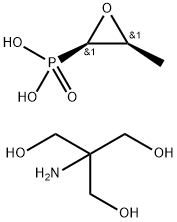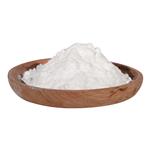General Description
Fosfomycin tromethamine (Monurol) is a phosphonic acidepoxide derivative that was initially isolated from fermentationsof Streptomyces spp. Making the tromethamine salt greatly expanded the therapeutic utility of this antibacterial because water solubilityincreased enough to allow oral administration.
Fosfomycin is a broad-spectrum, bactericidal antibacterialthat inhibits the growth of E. coli, S. aureus, andSerratia, Klebsiella, Citrobacter, Enterococcus, andEnterobacter spp. at a concentration less than 64 mg/L.Currently fosfomycin is recommended as single-dose therapyfor uncomplicated urinary tract infections. It possessesin vitro efficacy similar to that of norfloxacin and trimethoprim-sulfamethoxazole.
Fosfomycin covalently inactivates the first enzyme in thebacterial cell wall biosynthesis pathway, UDP-N-acetylglucosamineenolpyruvyl transferase (MurA) by alkylation ofthe cysteine-115 residue. The inactivation reaction occursthrough nucleophilic opening of the epoxide ring. Resistanceto fosfomycin can occur through chromosomal mutationsthat result in reduced uptake or reduced MurA affinity for theinhibitor. Plasmid-mediated resistance mechanisms involveconjugative bioinactivation of the antibiotic with glutathione.The frequency of resistant mutants in in vitro studies hasbeen low, and there appears to be little cross-resistance betweenfosfomycin and other antibacterials.




